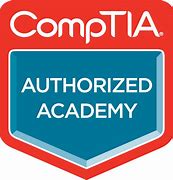Overview
Learn about the duties of cybersecurity analysts who are responsible for monitoring and detecting security incidents in information systems and networks and for executing a proper response to such incidents. Depending on the size of the organization, this individual may act alone or may be a member of a cybersecurity incident response team (CSIRT).
Gain the tools and tactics to manage cybersecurity risks, identify various types of common threats, evaluate an organization’s security, collect and analyze cybersecurity intelligence, and handle incidents as they occur. This is a comprehensive approach to security aimed toward those on the front lines of defense.
This course is designed to assist students in preparing for the CompTIACySA+ – Cybersecurity Analyst+ (CS0-002) certification exam.






